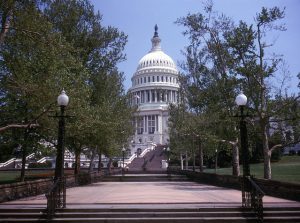Where Does California’s $635M in Marijuana Tax Money Go?
 The state of California has now permitted the legal use of marijuana for two years. And tax dollars collected from the cannabis industry are already showing great impact across a variety of sectors.
The state of California has now permitted the legal use of marijuana for two years. And tax dollars collected from the cannabis industry are already showing great impact across a variety of sectors.
Since its passing in 2016, Prop 64 has earmarked its entire cannabis industry tax revenue, minus regulatory costs, to supporting public health, repairing the environment, and bettering public safety.
New parks, healthier children, broader educational opportunities, forest clean ups, drugged drivers removed from the roads, and criminal records cleared are just some of the areas already seeing big improvements thanks to Prop 64 tax revenue contributions.
And this is just the beginning. In mid January this year, Gov. Gavin Newsom proclaimed another $332.8 million in cannabis tax revenue would be allocated to social services for the 2020-2021 fiscal year.
 Cannabis Law Group's Medical Marijuana Legal Blog
Cannabis Law Group's Medical Marijuana Legal Blog





 A California-developed online tool, called ‘Clear My Record,’ which helps people with eligible convictions clear their criminal records, is set to change the lives of hundreds of thousands of Americans previously convicted of marijuana related crimes.
A California-developed online tool, called ‘Clear My Record,’ which helps people with eligible convictions clear their criminal records, is set to change the lives of hundreds of thousands of Americans previously convicted of marijuana related crimes.
 Marijuana supporters in California rejoiced late last month as legislation passed by the U.S. House of Representatives could afford the industry more freedom to grow. Currently, the recreational use and sale of marijuana is legal in California, along with 10 other states, and Washington D.C. But federal law continues to classify cannabis as a Schedule 1 narcotic. While it is yet to happen, this makes folks in the cannabis industry weary, as the door remains open for the federal government to prosecute against cannabis related businesses, even in states that have legalized marijuana.
Marijuana supporters in California rejoiced late last month as legislation passed by the U.S. House of Representatives could afford the industry more freedom to grow. Currently, the recreational use and sale of marijuana is legal in California, along with 10 other states, and Washington D.C. But federal law continues to classify cannabis as a Schedule 1 narcotic. While it is yet to happen, this makes folks in the cannabis industry weary, as the door remains open for the federal government to prosecute against cannabis related businesses, even in states that have legalized marijuana.



 benefits, many parents and teachers are facing their next challenge: How do I talk to kids about marijuana? California has been tasked with establishing new education programs to effectively prevent children from consuming cannabis, while making them aware of the choices they will have to make as an adult in a post-legalization world. As such, we are seeing the classic “Just Say No” campaigns shift to a new message: “Delay.” According to an article from
benefits, many parents and teachers are facing their next challenge: How do I talk to kids about marijuana? California has been tasked with establishing new education programs to effectively prevent children from consuming cannabis, while making them aware of the choices they will have to make as an adult in a post-legalization world. As such, we are seeing the classic “Just Say No” campaigns shift to a new message: “Delay.” According to an article from  employers could (or should) enforce zero-tolerance drug policies against employees with medical cannabis prescriptions.
employers could (or should) enforce zero-tolerance drug policies against employees with medical cannabis prescriptions.